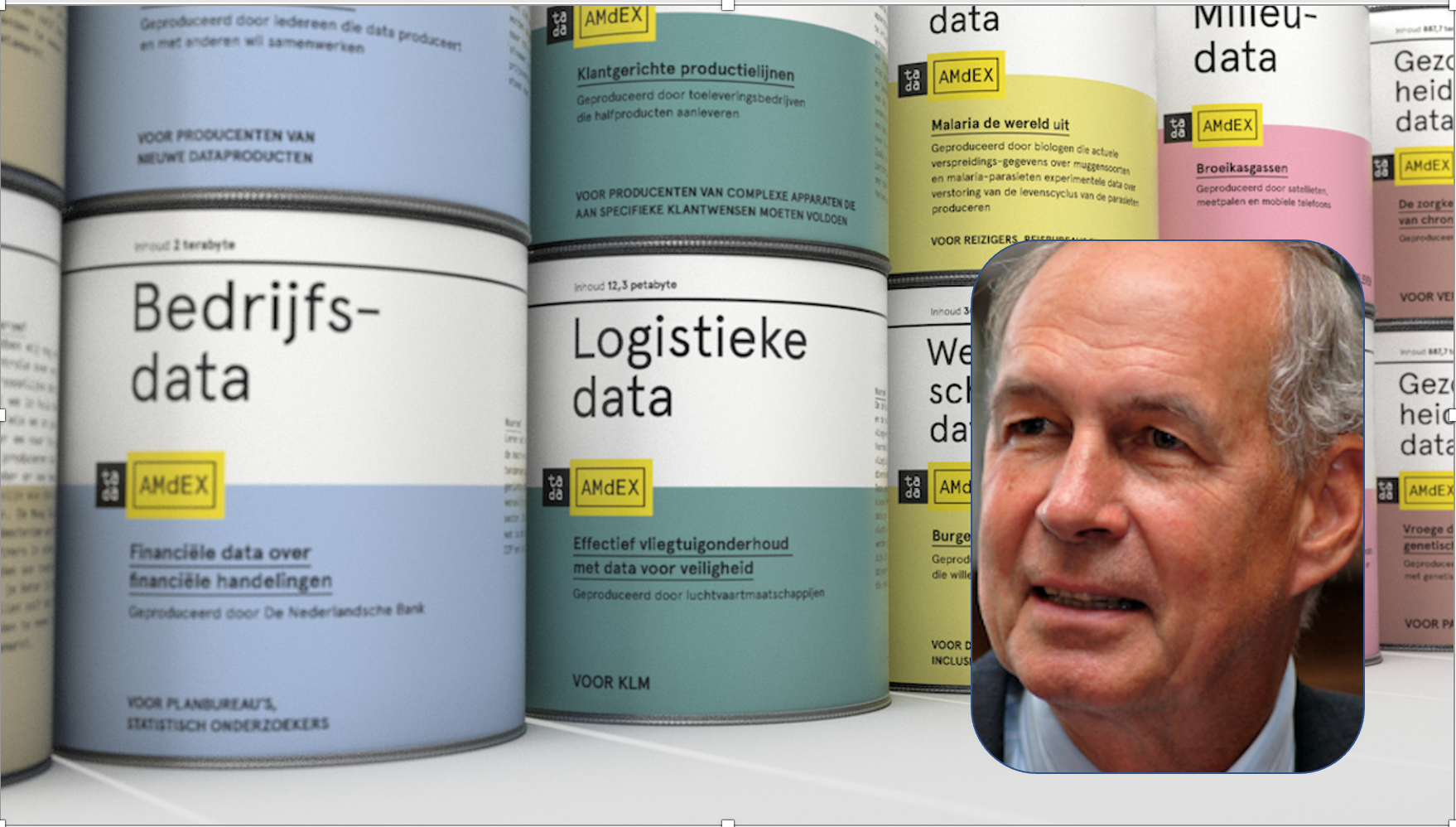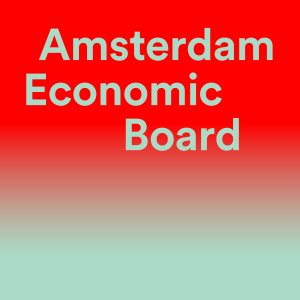Interview with Wouter Los, digital infrastructure consultant
Reliable data sharing? The Amsterdam Data Exchange (AMdEX) supports collaborating organizations to take advantage of secure data marketplaces. Wouter Los is one of the initiators of AMdEX: ‘If secure marketplaces for data are created, a lot will be possible with data that is now behind fences everywhere. Then, for example, the use of the Internet of Things can grow very quickly.’
Worldwide, the amount of data is increasing exponentially. Yet we only use one percent of all our data for sharing and analysis. With that we leave a valuable part of all that information undisturbed. How to turn the tide? Digital infrastructure consultant Wouter Los: ‘If we want to share data with each other, then trust is necessary.’
Why do we prefer to keep all that data to ourselves?
‘In the end, everyone has the same question: how can I be sure that someone else doesn’t run off with my data? So: can I share my data reliably and under my conditions? You don’t want someone else to claim co-ownership like the big guys at Amazon do. Now if you’re starting an online store, it’s easy to use Amazon’s infrastructure. But through their data software they can also see what you want to sell and who your customers are. What we want is an open data market for companies, governments and every individual.’
And that no one will run off with your data.
‘Yes, the name Amsterdam Data Exchange (AMdEX) ensures that people and organizations share their data under their own conditions and with the same rules of the game. With other like-minded initiatives, we want a European alternative, decentralized, not dominated by big players. And without political dimensions, like in China, where the state controls all data.”
Is AMdEX a forerunner in this field?
‘As a trusted third party, the Netherlands has historically played an important role in the country of trade and services, with innovations such as the stock market. The Amsterdam Internet Exchange (AMS-IX) – one of the most important internet hubs in Europe – once started that way. In the early 1990s, the internet was still very small. It has since exploded.
We are now in a similar situation. Once we can “trade” our data with certainty and confidence, as with AMdEX, the data economy can explode in the same way.
That means a revolution. In addition to the traditional physical manufacturing industry and trade, there will also be room for analyzing and/or combining data that support the traditional industry and that also make new digital data products and services a reality.
‘I always like to compare it to how our food was once produced. In the past, everyone lived on a small farm where people were self-sufficient. If you had leftover food, you sold it at a roadside stall. The ‘market’ was an innovation where farmers sold their products; a place where you can specialize, compare products, with market rules and your own infrastructure. Only later did the supermarkets or the niche providers that focus on certain products with quality. This gave farmers opportunities that they did not have before. But also new economic activity with transporters, cold stores, new products, etc. In fact, the same thing happens with data; people now keep it for themselves and what they have left they sell on a web address. But once there is a safe marketplace for data, a new economy can grow very quickly.’
So, it’s an Albert Cuyp market for data?
‘What you want is a level playing field. No third party to watch and walk away with the profit. The technical story behind it is that the data does not come together in a closed central place, but is only shared between the affiliated parties – so directly from A to B. Without, for example, uploading data to a platform first.
This also makes it technically possible to impose conditions on you and implement control mechanisms that ensure what does or does not happen with your information. For that we need an infrastructure that makes this reliable exchange possible. The AMdEX infrastructure – set up as a public law organization – functions in the background to ensure reliable data transports of collaborating parties in new data markets. And just like an Albert Cuyp market offers the facilities, stall holders with data maintain the market themselves.’
How do we get this off the ground?
‘To start with, we need a number of sectors willing to embrace the new approach; in business, science and government. It is hopeful that various organizations have already expressed their willingness to contribute to this by testing a number of scenarios together.
‘An example is the AMDEX use case that focuses on promoting a circular economy through the reuse of certified waste products. Such a supply and demand marketplace cannot do without data. Commercial organisations, governments and possibly financiers and insurers can create value here through targeted data sharing that would otherwise not be possible or not as quickly as possible.
‘Another example is how the cleaning sector – one of the largest in Europe – can operate more safely and efficiently by using the growing number of sensors in buildings and cleaning equipment. The perspective is that new generations of sensors can also generate data that is important for public health. For example, administrators can share location-specific Corona data with GGDs for a new independent data stream for action and policy.’
Where should the AMdEX be in two years?
‘Parties from the public sector in particular have joined forces to develop a first phase of AMDEX and to test the general functionality with a number of concrete cases. These developments may inspire other sectors to shape new data markets. The national data sharing coalition helps to make mutual agreements for those data markets. AMDEX is responsible for the digital infrastructure to technically ensure the implementation of these agreements.
Based on this trust, it is challenging to understand that also sharing some data with competitors can give everyone involved an advantage that cannot be achieved otherwise. In addition to the national approach, there are also initiatives to link comparable facilities in other European regions and countries for cross-border data sharing. That means more connected “marketplaces” to enable the envisioned billions of reliable data transactions per second.’
This article is an update of an interview by Renske Jonkman, which appeared on amsterdameconomicboard.com in August 2019.







